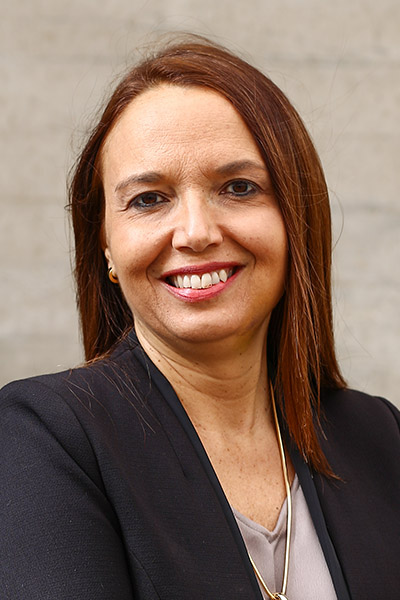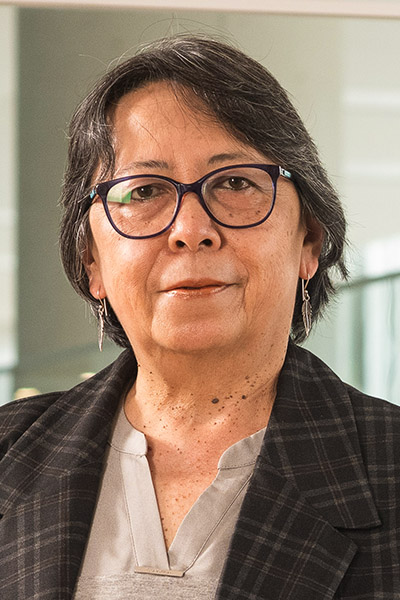
PUCP joined the consortium of the RRReMaker project (Reuse, Reduce, Recycle AI-based platform for automated and scalable Maker culture in Circular economy) -funded by the Horizon Europe outline (see box)-, which aims to generate international collaborative research and innovation around a main topic. The project will allow our University to obtain European funds to promote and pay for the mobilities of researchers in both directions in order to promote Peruvian craftsmanship, seeking the economic sustainability of this sector through new practices such as the use of technologies, including AI.
This is how RRReMaker aims to facilitate collaboration and reinforce the impact of international collaborative research initiatives, as well as to create spaces for the dissemination of knowledge, science and technology.
The project coordinators in Peru and at our University are Dr. Beatrice Avolio, Head of the Academic Department of Graduate Program in Business, and M.A. Edith Meneses, Head of the Academic Department of Art and Design.
“The idea is that everyone learns about business sustainability, circular economy, digitalization, design, cultural heritage, among other topics in this process. To achieve this, professors from the University of Granada will visit us. For example, the director of the project herself will make a stay in September to see what is done in terms of art, craftsmanship and design in Peru. From our end, we will send our researchers to make stays abroad,” says Dr. Beatrice Avolio.
It is a framework program for research and innovation of the European Union that has been implemented over a period of seven years (2021-2027). Its main purpose is to have a scientific, technological, economic and social impact on the investments of the European Union.
"The Horizon Europe Outline Program focuses on innovation, research and creation. It has been allocated a large budget of €95.5 billion. Different universities, NGOs and companies around the world participate. They are committed to projects that address issues such as climate change, sustainable development goals, how to increase the competitiveness of European countries and third partners,” explains César Miranda, International Development Coordinator of the DARI.

The idea is that everyone learns about business sustainability, circular economy, digitalization, design, cultural heritage, among other topics in this process. To achieve this, researchers from the University of Granada will visit us. For example, the director of the project herself will make a stay in September to see what is done in terms of art, craftsmanship and design in Peru. From our end, we will send our researchers to make stays abroad.”
Dr. Beatrice Avolio
Head of the Academic Department of Graduate Program in Business

Being able to bring together aspects related to the sustainability of the entrepreneurships and the fundamental characteristics in art, design, and what craftsmanship in general means are multidisciplinary aspects that we can address between the two departments within the framework of the project. It will allow us to add technology, even the use of AI, not only at the level of art or design languages, but also of craftsmanship.”
M.A. Edith Meneses
Head of the Academic Department of Art and Design
It is important to highlight that PUCP was invited by the University of Granada (Spain), leader of the consortium where 14 institutions from 8 different countries participate. The contact took place during a postdoctoral research stay carried out by the Head of the Academic Department of the Graduate Program in Business at that university. It was precisely the dean of Art at the Spanish educational institution who made the invitation.
“Thanks to stays in different institutions, important contacts are made. This project has a huge projection. The most interesting thing is that aspects of small business and entrepreneurship with cultural heritage, crafts, art are mixed" adds Dr. Avolio.
On her part, M.A. Edith Meneses comments on the multi-disciplinary nature that characterizes this project. “It will allow the exchange of knowledge among professionals and also will open up many possibilities for researching new topics. Likewise, being able to bring together aspects related to the sustainability of entrepreneurships and the fundamental characteristics in art, design, and what craftsmanship in general means are multidisciplinary aspects that we can address between the two departments within the framework of the project. It will allow us to add technology, even the use of AI, not only at the level of art or design languages but also of craftsmanship,” said M.A. Edith Meneses.

Although the European problem is linked to the fact that young people do not value cultural heritage, while ours is related to access to markets or the digital world - which means the sustainability of the craft sector - the RRReMaker project will contribute to finding solutions through teamwork.
Both Meneses and Avolio agree that the research they are involved in and will strengthen, thanks to this project, is done always thinking about the social impact that it can generate, especially, since tourism is such an important economic sector in our country and one of the most affected by the pandemic.
“In the craft sector, the majority of whom tend to be women, and it is a very important and urgent issue. There are currently women's associations that, through the development of craft skills and competences, are helping others. But I believe that research and innovation could enable them to be completely independent and eradicate problems like family violence. That is why, for years, we have had research groups, such as AXIS ARTE Group, focused on this topic," says M.A. Edith Meneses.
© 2020. Pontificia Universidad Católica del Perú – All rights reserved.